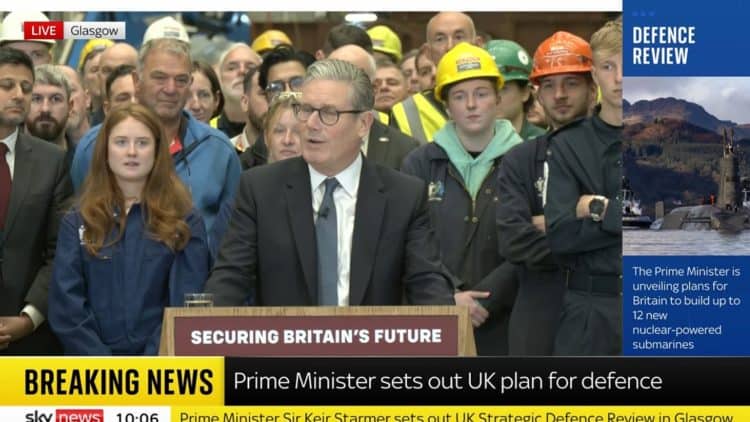A new report from Savills reveals that the government is even further off track of its promise to build 1.5 million new homes by 2030 than previously thought. Meanwhile, Prime Minister Keir Starmer has signalled a major shift towards ramping up defence spending and moving the British military into “war-fighting readiness.”
Housing crisis deepens
The Office for Budget Responsibility (OBR) forecasts that, under current policy, the UK will fall significantly short of the 1.5 million homes target. Kate Henderson, chief executive of the National Housing Federation (NHF), which commissioned the Savills analysis, told The Guardian:
“This analysis shows that reaching the OBR’s forecasts, let alone the government’s targets, will require a generational boost to investment in social and affordable housing.”
Chris Buckle, residential research director at Savills, added:
“The heroic rates of growth forecast by the OBR will not be achieved without further action from the government to support demand—particularly support for housing associations and an ambitious new grant funding programme.”
Despite these warnings, the government’s financial priorities appear elsewhere.
Defence spending surges
At the same time, Starmer used his defence review announcement to emphasise that the UK must be ready to deter any major threat. He said:
“We are moving to war-fighting readiness as the central purpose of our armed forces. When we are directly threatened by states with advanced military forces, the most effective way to deter them is to be ready—and, frankly, to show them we’re ready to deliver peace through strength.”
This means increasing defence spending towards 3% of GDP, commissioning 12 new attack submarines, investing £1.5bn in munitions factories, and allocating £15bn for nuclear weapons production.
Critics slam welfare cuts
The Stop the War campaign denounced the shift away from housing and welfare. Its vice chair, Chris Nineham, said:
“Increasing defence spending to up to 3% of GDP—procurement of more and more weapons—while slashing welfare is grotesque. They paint a picture of the highest military threat since the Cold War, but tying an ailing economy more to arms production only makes war likelier.”
Nineham pointed out that Russia’s economy is roughly the size of Spain’s and that President Vladimir Putin is vastly outnumbered by NATO. He added:
“Building more munitions factories and submarines under the guise of creating jobs is a ruse. Military spending generates less overall economic activity compared to investments in essential services and infrastructure.”
Greens urge investment in peace
The Green Party also criticised the strategic defence review. Defence spokesperson Ellie Chowns argued:
“Security isn’t based solely on arms spending—it’s built through diplomacy and development. There must be a real commitment to an international order based on human rights, equality and cooperation.”
Chowns called for the international aid budget to be restored to 0.7% of GNI, and urged:
“Real patriotism means ending UK-made weapons being sold to dictators or used against civilians. The government’s focus should be on the clean, green—and peaceful—economy, a sector growing four times faster than the rest of the economy. That’s where jobs and future prosperity lie.”
You may also like: Reform UK’s “DOGE” audit plan already in tatters—here’s why it’s a farce







